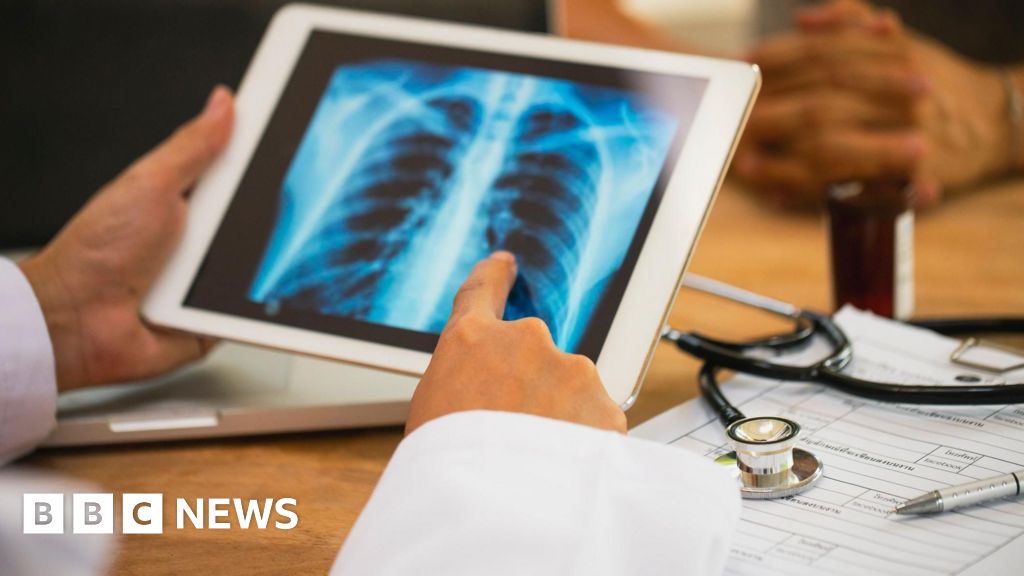The percentage of Scottish cancer patients receiving treatment within the target time is the lowest since records began, new figures show. Data released byPublic Health Scotlandreveals almost a third of patients referred to the NHS in Scotland with an urgent suspicion of cancer are waiting longer than the 62-day target to start treatment. The rate fell to 68.9% in the first three months of 2025 - the lowest reported since records began a decade ago. A target that 95% of patients should start treatment within 31 days of diagnosis has also not been met. Figures show 94.1% of patients started treatment within that timeframe. NHS Lanarkshire was the only health board to meet the target that 95% of patients should start treatment within 62 days of an urgent referral. Scottish Conservatives health spokesman Dr Sandesh Gulhane said one patient waiting more than two months is too many. He said: "These appalling statistics confirm Scotland is facing a ticking timebomb when it comes to cancer cases on the SNP's watch. "SNP ministers have not met their own waiting time target in over a decade and need to cut out their pitiful excuses and act now." Scottish Liberal Democrat leader Alex Cole-Hamilton said patients "cannot depend" on the government. He added: "It is appalling that people are enduring these lengthy waits when early intervention is crucial to survival in cancer cases." The figures were published after the chair of the British Medical Association (BMA) in Scotland said it was "abundantly clear" that Scotland was now divided. Dr Iain Kennedy said there was a split between people who could afford to go private and those forced to "languish" on NHS waiting lists. In 2024, 72.1% of patients started treatment within the target time between July and September, a decrease from 73.2% in the previous quarter of April to June. The PHS report looks at two key cancer waiting times. The 62-day standard is based on the time from urgent suspicion of cancer referral to first cancer treatment. Meanwhile, the 31-day standard measures the time from a decision to treat to the start of first treatment for newly-diagnosed primary cancers.
Scotland's cancer treatment waiting times worst on record
TruthLens AI Suggested Headline:
"Scotland Faces Record Low Cancer Treatment Waiting Times, Sparks Political Criticism"
TruthLens AI Summary
Recent data from Public Health Scotland has highlighted a concerning trend in the treatment of cancer patients, revealing that the percentage of those receiving timely care has reached its lowest level since records began. Specifically, nearly one-third of patients referred to the NHS with urgent cancer suspicions are waiting beyond the 62-day target for treatment initiation, with the compliance rate dropping to 68.9% in the first quarter of 2025. Additionally, the standard that mandates 95% of patients should start treatment within 31 days of diagnosis has also not been met, with only 94.1% of patients receiving timely intervention. Notably, NHS Lanarkshire was the sole health board to meet the 62-day target, underscoring significant disparities in service delivery across Scotland. This deterioration in waiting times has prompted sharp criticism from political figures, including Scottish Conservative health spokesman Dr. Sandesh Gulhane, who expressed alarm over the statistics and characterized the situation as a 'ticking timebomb' regarding cancer care under the Scottish National Party's governance.
The implications of these statistics extend beyond mere numbers, as the chair of the British Medical Association (BMA) in Scotland, Dr. Iain Kennedy, pointed out a widening gap between those who can afford private healthcare and those reliant on the NHS, who are left to endure lengthy waits. The decline in the percentage of patients starting treatment within the target time has been noted over recent quarters, with a drop from 72.1% in July to September 2024 to 73.2% in the preceding quarter. The report from Public Health Scotland focuses on two critical waiting time standards: the 62-day period from urgent cancer suspicion referral to treatment commencement, and the 31-day timeframe from treatment decision to the start of first treatment for newly diagnosed primary cancers. The ongoing failure to meet these benchmarks raises urgent questions about the effectiveness of the current healthcare system in Scotland and the need for immediate reforms to ensure timely cancer care for all patients.
TruthLens AI Analysis
You need to be a member to generate the AI analysis for this article.
Log In to Generate AnalysisNot a member yet? Register for free.
